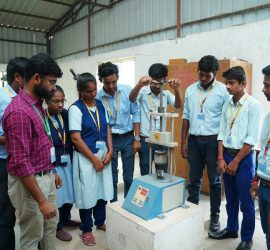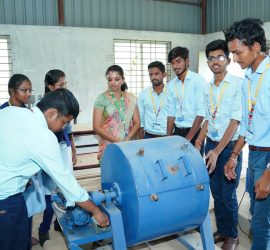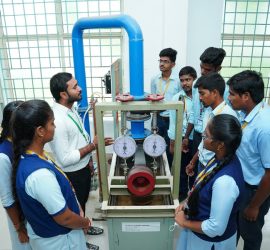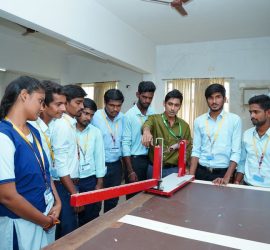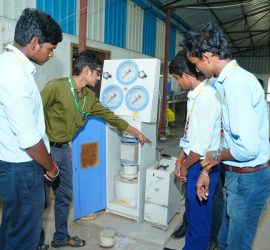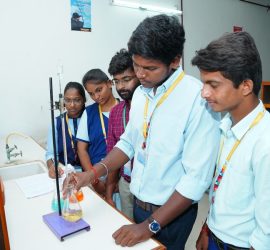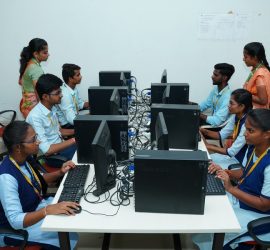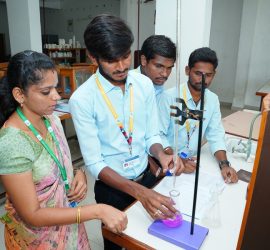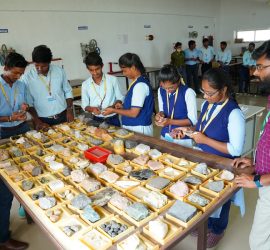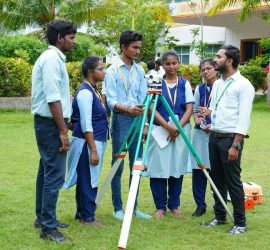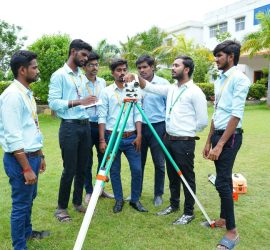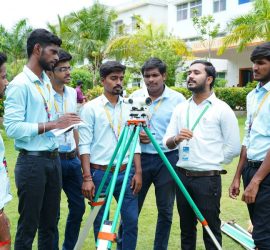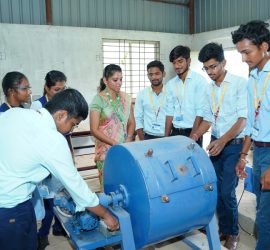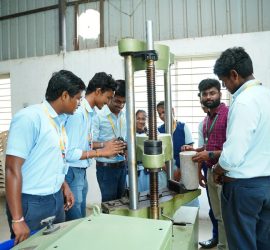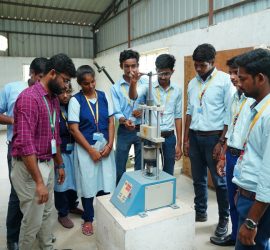CIVIL ENGINEERING is one of the oldest branches of engineering that enhance the standard of living of a nation through infrastructural development. Civil engineering deals with the planning, design, construction, operation, maintenance of infrastructure elements such as buildings, highways, bridges, railroads, tunnels, dams, and airports. Civil engineering also deals with the research for the development of innovative technologies that aid in economical and eco-friendly infrastructural development. Civil engineering also deals with solutions to problems involving drinking water supply, sanitation, irrigation & flood control, waste management, and the protection of the environment. A civil engineer not only requires a high standard of engineering knowledge but also supervisory and administrative skills. Civil Engineers plan, design, and supervise the construction of facilities essential to satisfy the needs of modern life.
Department of Civil Engineering was established in 2013 with an intake of 60 in UG and Structural engineering in PG with the intake of 24 from 2014.It consists of well-qualified, experienced, and dedicated faculty and committed supporting staff. The departmental major activities include teaching and research, and providing consultancy services to various organizations in the area of Civil Engineering. The faculty continues to strive hard by exploring new frontiers of knowledge, imparting the latest technical knowledge to the students, and conducting high-quality research. The faculty also renders technical advice on live engineering problems to various Government and Private Sector companies throughout the country. The department has produced several engineers who have been working under various government and private organizations.
VISION
To become a premier department of learning in Civil Engineering that empowers its students to be technically sound, ethical and conscious of the environment and sustainability.
MISSION
B.Tech. in CE
M.Tech. in SE
PROGRAM EDUCATIONAL OBJECTIVES (PEO)
After few years of the completion of the Program, the graduates of B.Tech. (CE) will!
PROGRAM OUTCOMES (PO)
On successful completion of the Program, the graduates of B. Tech. (CE) Program will be able to:
PROGRAM SPECIFIC OUTCOMES (PSO)
On successful completion of the B. Tech. (CE) Program, the graduates will be able to
M.Tech (Civil)
M.Tech Programme Educational Objectives (PEOs)
M.Tech Programme Outcomes(POs)
Post Graduates of the Civil Engineering program will be able to
M.Tech Programme SPECIFIC OUTCOMES (PSOs)
On completion of M. Tech. (Structural Engineering) programme, graduates will be able to
Department Event Calendars
Labs
Academic Regulations and Syllabus
| B.Tech in Civil Engineering – SRET24 Syllabus | Download |
| UG Programmes B.Tech – R23 Regulations | Download |
| B.Tech in CE – R23 Syllabus | Download |
| B.Tech in Civil Engineering – R20 Syllabus | Download |
| B.Tech in Civil Engineering – R19 Syllabus | Download |
| B.Tech in Civil Engineering – R15 Syllabus | Download |
| B.Tech in Civil Engineering – R13 Syllabus | Download |




